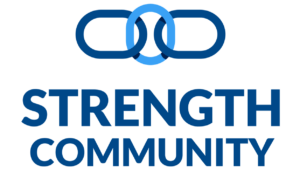Sleep is not a luxury; it is a human necessity and invaluable to one's health. In fact, one of the oldest forms of torture is to prevent people from sleeping.
During sleep, our bodies perform most of the processes of repair, construction, growth, detoxification, and cleaning.
Some scientists believe that sleeping is also a way of conserving energy.
This is not an article about how to improve your sleep, as we have already extensively covered that topic in the eBook 25 Tricks to Get Your Sleep Back, which you can download here.
In this article, I will provide an extensive, non-exhaustive list of scientifically proven negative health consequences of sleep deprivation.
The first step to providing an adequate understanding of the topic is to mention that research has shown that we need 7 to 9 hours of uninterrupted sleep every night.
When people get this optimal amount of uninterrupted sleep time, different hormonal cascades will be properly regulated during the day.
As I mentioned earlier, this is a list, sorted by the different affected systems/organs/functions, and most of them have been seen with just one night of sleep deprivation.
1. Hormonal alterations:
- Leptin and ghrelin
- Dysregulation Insulin and blood sugar dysregulation
- Decreased insulin sensitivity
- Decreased thyroid function
- Increased cortisol secretion
- Increased estrogen production
- Decreased estrogen excretion
- Decreased growth hormone production
- Decreased DHEA production
- Decreased testosterone production
- Decreased melatonin production
The aforementioned disturbances can lead to obesity, weight gain, diabetes, infertility, decreased sexual function, sugar and carbohydrate cravings, and toxicity.
3. Cardiovascular dysfunction:
- Dyslipidemia
- Increased blood pressure
- Arrhythmia
- Elevated heart rate
All of the above can lead to an increase in the risk of heart disease.
3. Cancer risk:
- Increase in the risk of breast cancer
- Increase in the risk of colorectal cancer
- Increase in the risk of hormonal driven cancers
It is my opinion that lack of sleep can increase the risk of developing all types of cancer
4. Brain function:
- Impaired memory
- Decreased memory formation
- Decreased learning
- Decreased cognition
- Greater risk of depression
- Greater risk of suicide
- Central nervous system dysfunction
In essence, the brain cannot operate at its full potential if a lack of sleep is present
5. Aging:
- Increased oxidation and oxidative stress
- Increased inflammation
- Increased insulin
- Increased cortisol
Yes, aging is considered a condition and the factors above can increase its rate of development.
6. Immune function:
Lack of sleep negatively alters the proper function of all the components of the immune system.
7. Sports performance:
- Increased risk of overtraining
- Increased risk of under-recovery
- Decreased capacity for gaining muscle mass
- Decreased capacity of gaining strength
- Decreased performance in the sport
The human body cannot perform at its full potential if it is not entirely rested and recovered.
As you can see, lack of sleep is not a joke or just a game.
It is extremely serious and can take a big toll on overall health.
As coaches and trainers, we work hard to have our athletes/clients get the best possible results, and that’s why I devote a full lecture on sleep during the Metabolic Balance Class, in order to provide you with up-to-date information and strategies to address sleep in the best possible way.
Coach Carlos Castro

